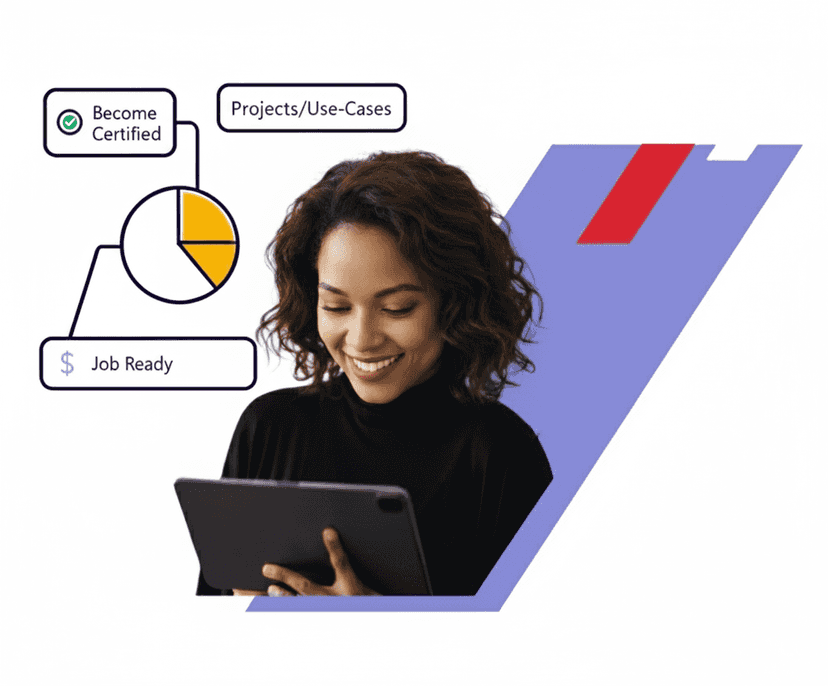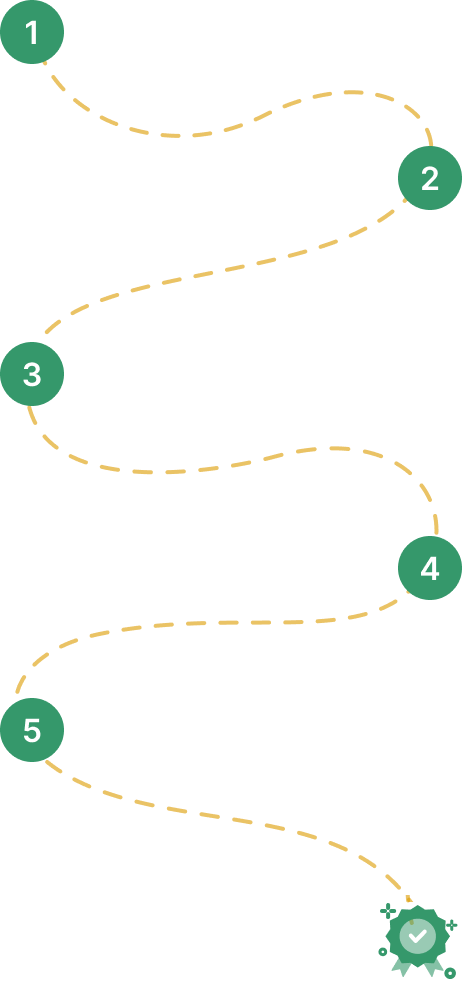- Home
- Build Automation and Release Management Courses
- TeamCity Training


Real-time Use cases | 24/7 Lifetime Support | Certification Based Curriculum |
Flexible Schedules | One-on-one doubt clearing | Career path guidance |
MindMajix TeamCity Training: Learn continuous integration server, how to set up a build server for CI and create build scripts using MSBuild to manage the overall build process. Get hands-on training on TeamCity Build Agent, TeamCity server configuration, Web Interface., etc. You will also get an exposure to industry based real-time projects in various verticals.
The TeamCity course by MindMajix delivers core modules to deliver skills that include current job market needs. MindMajix trainer community with highly reputed trainers come together to curate the curriculum, which covers the topics of the latest certifications and skills employers expect from trained individuals. Our TeamCity online training curriculum covers the following concepts:
1. Introduction to Continuous Integration
Practices
Benefits
Continuous deployment and Continuous Delivery
The build pipeline
2. Introduction to TeamCity
Licensing
Features
First-class support for various technologies
Lots of plugins
REST API
Comprehensive VCS support
A nice dashboard UI and build history
Ease of setup and comprehensive documentation
Build pipeline/chains
Agents and build grids
IDE integrations
3. TeamCity and its competitors
Jenkins
ThoughtWorks' Go
4. Summary
1. Installing on Windows
Installing the server and the default agent
Installing additional agents
2. Installation on Mac OS X
Running the TeamCity server and the default agent
Setting up the TeamCity server as a daemon
Installing additional agents
3. Installation on Linux
Running the server and the default agent
Running the TeamCity server as a daemon
Installing additional agents
4. Summary
1. Introducing version control systems
Centralized versus distributed VCSs
VCSs and CI
VCS used in this book
2. Setting up CI
1. The sample project
2. Creating a project in TeamCity
Subprojects
3. Adding build configurations
VCS roots and VCS settings
Introducing the build steps
Running our first build
Build failure conditions
Triggering the build on VCS changes
4. Build chains
1. Deploying to Heroku
2. Adding functional tests
Parameters and build parameters
3. Setting up the build chain
Snapshot dependencies
The Finish build trigger
The Build chain view
5. Fine-tuning our setup
1. Adding coverage and unit test reports
Publishing reports as artifacts
XML report processing
Report tabs
Build and project statistics
Shared resources
Agent Requirements
1. Using Ant with TeamCity
Installing Ant
Building with Ant build files
Building with Ant in a build configuration
Adding some unit tests
Setting up code coverage
Build scripts versus TeamCity features
System properties and Ant
2. Using Maven with TeamCity
Installing Maven
Creating a Maven project
Introducing the Project Object Model (POM)
Building the project
Using Maven in a build configuration
Setting version number
Setting up code coverage for our build
Maven on TeamCity, beyond the build runner
Creating a Maven build configuration
Global Maven settings file
Setting up Maven-based triggers
3. Using Gradle with TeamCity
Installing Gradle
Building with Gradle on TeamCity
4. Introducing database migration tools
5. Summary
1. Getting started with NAnt on TeamCity
Installing NAnt
Building NAnt with NAnt
Building on TeamCity
Adding NUnit report processing
Configuring agent requirements
2. Building with MSBuild
Installing MSBuild
Starting an MSBuild project
Building with MSBuild on TeamCity
Adding an NUnit build runner
Running NUnit tests using NUnit task
Running NUnit tests using the task provided by TeamCity
Configuring code coverage with MSBuild
3. NuGet and TeamCity
Installing the NuGet command-line client
Installing NuGet.exe on TeamCity agents
TeamCity as a NuGet server
NuGet-based build runners
NuGet dependency trigger
4. Introducing PowerShell
PowerShell-based build tools
PowerShell build runner in TeamCity
5. Database migrations with .NET
6. Summary
1. Getting started with Rails
Managing Ruby versions
Introducing Bundler
Installing Rails using Bundler
Introducing Rake
Setting up the build on TeamCity
Setting up Ruby interpreter
Running Capybara- and Selenium-based feature tests
2. Summary
1. CI for Android projects
Generating the APK
Running Calabash tests
2. Building iOS projects on TeamCity
3. Installing TeamCity plugins
Installing the Python runner plugin
Building with the Python build runner
Introduction to TeamCity.Node plugin
4. Summary
1. IDE integrations
IntelliJ platform IDEs integration
Installing the plugin
Configuring notifications
Managing projects from the IDE
Opening files and patches in IDE
Remote Run
Visual Studio integrations
2. GitHub integrations
GitHub webhooks and services
Using the TeamCity.GitHub plugin
Support for pull requests
Integrating with GitHub issue tracker
3. Build monitors
Team Piazza
Project Monitor
Build lights
4. Notifications
5. Summary
1. Managing projects of interest
Hiding projects
Hiding build configurations
2. Navigating across projects
3. Investigating investigations
Assigning investigations
Viewing active investigations
Managing current and muted problems
4. TeamCity universal search
5. Actions on build configurations
Pausing triggers in a build configuration
Checking for pending changes
Enforcing clean checkout
6. Summary
1. Build configuration templates
Creating templates from scratch
Creating build configurations from the template
Creating templates from existing build configurations
2. Going meta with Meta-Runners
Using Meta-Runners
3. Build result actions
Commenting on build results
Tagging build results
Pinning build results
Promoting builds
Marking the build as successful or failed
Removing builds
4. Build history cleanup
Cleanup rules
Archiving projects
5. Configuring build priorities
6. Interacting with TeamCity from build scripts
Service messages
Creating teamcity-info.xml
7. Summary
2+ More lessons
Most of the TeamCity Jobs in the industry expect the following add-on skills. Hence, we offer these skills-set as FREE Courses (Basics) to ease your learning process and help you stay ahead of the competition.
Our TeamCity Training course aims to deliver quality training that covers solid fundamental knowledge on core concepts with a practical approach. Such exposure to the current industry use-cases and scenarios will help learners scale up their skills and perform real-time projects with the best practices.
30 hrs of Self-Paced Videos

Get Pricing
30 hrs of Remote Classes in Zoom/Google meet
2026 Batches
Start - End
Local Time
Weekend
Mar 07 - Mar 22
07:00 PM
Weekdays
Mar 10 - Mar 25
07:00 PM
Weekend
Mar 14 - Mar 29
09:00 AM
Weekdays
Mar 17 - Apr 01
09:00 AM
Customize your schedule here

Empower your team with new skills to Enhance their performance and productivity.

Student
Student
Student
Lead - Salesforce Cloud, D&IT
Senior Technical Manager
Global Head of Infra, Security and Networks,
Business Analyst at American Red Cross, Culpeper, Virginia, United States
IT Business Systems Analyst, Sales Applications • CX GTM Global Program Manager - WomenConnect
Team Leader - DB Admin


Our work-support plans provide precise options as per your project tasks. Whether you are a newbie or an experienced professional seeking assistance in completing project tasks, we are here with the following plans to meet your custom needs: